Woman VS man: transgender revelations about how life has changed after a sex change
Categories: Conflict | North America | Society | World
By Pictolic https://pictolic.com/article/woman-vs-man-transgender-revelations-about-how-life-has-changed-after-a-sex-change.htmlIn recent years, the number of transgender people in the world has increased significantly. What do people feel when they become new personalities? Four transgender people told about how their worldview and the attitude of others towards them changed after the transition from female to male. It turns out that even in the modern world, men are treated with much more respect than women — both at work and in society. Our heroes felt it for themselves, comparing their past life with the present. Find out if their life has become easier after turning into men, from our material.

Those who have managed to visit both can best understand the difference in the attitude of society towards women and men. Transgender people who work in different fields, after changing their gender, felt significant changes in the attitude towards them from others.
The process of transition from female to male is much easier than vice versa. After six months of taking the hormone testosterone, hair begins to grow on the face, the body becomes more masculine, and the voice becomes rougher. It is much more difficult for men to become women, because their complexion is difficult to change with the help of hormones. It is not easy for newly-born women to find their place in a society that is still filled with patriarchal moods.
Four men who went through the process of sex change in adulthood, told about the gap that society has created between women and men.

Tristan Cotten, 50, from California, is a professor of gender studies and an editor of books about the transgender experience. An African-American man who changed his gender said that his life did not become easier in a male body because of racist prejudices. Since childhood, like many other black people in the United States, he felt unfriendly views on himself, but he learned to maintain his own dignity, no matter what.
Once someone crashed a car into the wall of a neighbor's house. Tristan immediately called the police. When he approached the policeman to tell about the incident, he pointed a gun at him and ordered him to lie down on the ground. The officer then searched the man, making caustic jokes. After the sex change, Tristan was stopped more often by the police on the street and checked whether he had a weapon with him and whether he had escaped from prison.
Race affects the process of sex change. The professor conducted an ethnographic study among transgender men and found that 96% of African-Americans and Latinos surveyed would like to have surgery. At the same time, only 45% of transgender people decide on it. This is due to racial discrimination, because the attitude of police officers to black transgender people is even worse than just to black people.
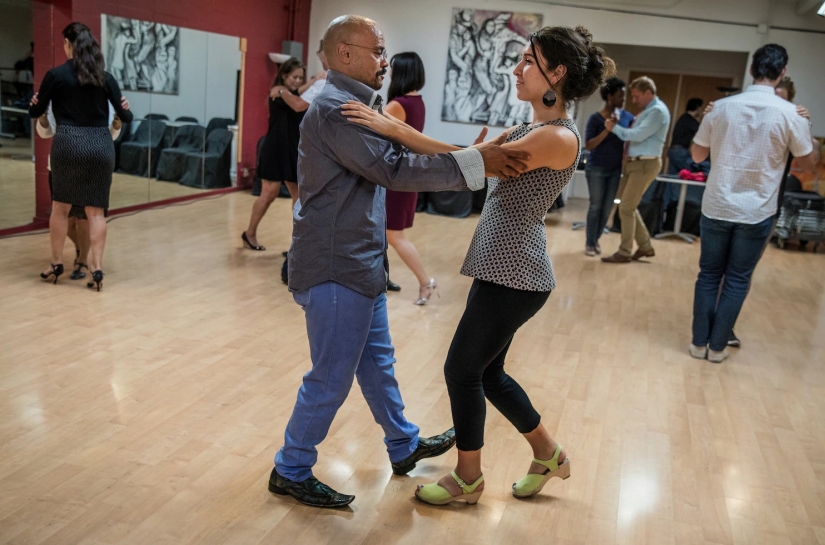
Tristan says that men also face sexism and gender harassment. After he changed his gender, a student began to pursue him, flooding him with letters and messages. When the professor shared the problem with his female colleagues, they just laughed at this situation. In fact, the problem turned out to be quite complicated, because the girl threatened to go to the police and accuse Tristan of sexual violence if he did not answer her.
When he was in a female body, such difficulties did not arise: once in the hostel, as a girl, he experienced harassment. The administration of the institution reacted instantly and provided a police escort.

Now, as a dark-skinned man, Tristan is forced to be much more vigilant than when he was in a female body. He tries not to make sudden movements in public places, because he may be suspected of something wrong. An African-American man sees how white women, having met him, often cross to the other side of the street, clutching their handbags tightly in their hands. He also has to monitor the style of clothing so that he is not mistaken for a bully in baggy jeans and a stretched sweater. The professor tries to be inconspicuous so as not to get into an unpleasant situation.
One day, when Tristan was walking down the street with books, tying them to himself with a belt, he was surrounded by the police. It turned out that someone reported that he saw a Muslim with explosives. This attitude of society not only humiliates, but also introduces a constant state of anxiety. If earlier, being in a female body, the professor could ask a policeman how to get to the right place, now he does not risk approaching the cops. The man decided that he would never contact the police again.

52-year-old Zander Keig from San Diego works at the Naval Medical Center and edits anthologies about transgender people. He started the gender reassignment process in 2005.

Before the sex change, the American was a staunch feminist. He participated in many campaigns and was never afraid to express his opinion out loud. Previously, he had never thought about how men live and feel, but after the sex change, he learned a lot of new things, communicating with new friends and getting his own experience.

Zander realized that women are treated much more gently than men-both at work and in other spheres of life. Now that he has become a man, the girls expect concessions from him: to give the opportunity to speak first, to give up a seat on the bus, to let him go ahead, etc. Such behavior outrages a transgender person, because he is convinced that gender equality should reign everywhere. He also began to notice that men are much friendlier to him than before the sex change.
Most of all, the American is struck by the fact that others have begun to treat him more distantly and with indifference. Sometimes it seems to him that he lives by himself: no one, except relatives and close friends, pays attention to his existence. It turned out that being a man is not so easy.
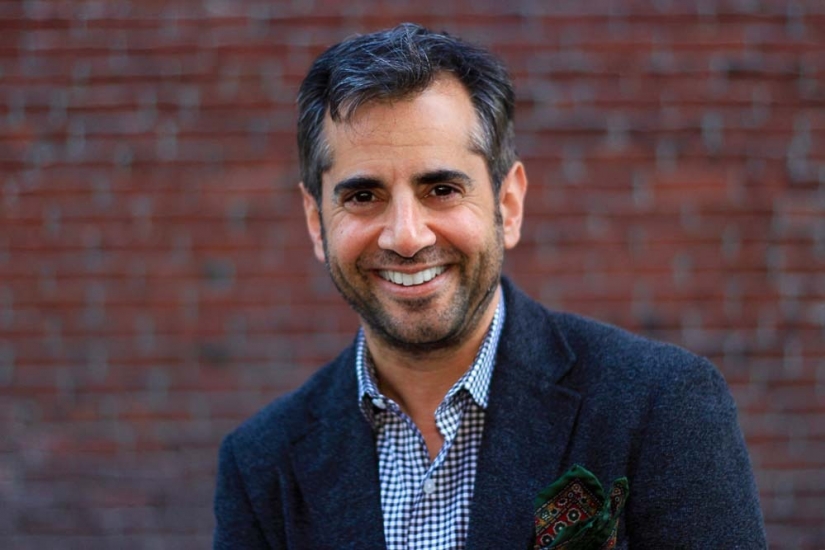
Chris Edwards, 49, from Boston – is a creative director at an advertising agency, a public figure and a writer. He began the process of changing his gender at the age of 26. After becoming a man, he was forced to change his communication style at work, although colleagues supported his choice. The American began to go to the club with his friends and learn from them the manners of male behavior. Gradually, Chris took control of his career, but the attitude towards him still changed a little: now he is not allowed to go ahead and do not hold the door at the entrance, as it was when he was in a female body.
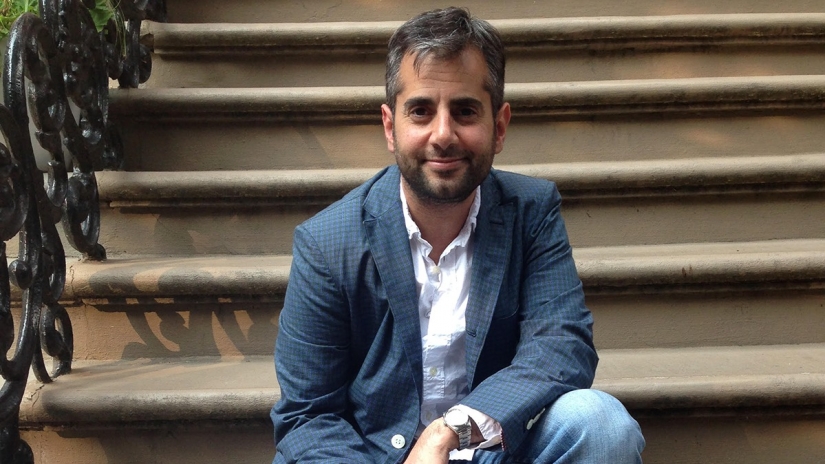
A transgender person admits that after changing his gender, he wanted to join society faster and not stand out from the crowd, but signs of difference sometimes still appear. At first, he often could not understand men's jokes and felt that he did not always fit into the male company. The hormones that Chris was taking made him more impatient: he stopped being a grateful listener, as before. If once he could listen to the chatter of his friends for hours, now he began to interrupt the interlocutors and demand to be closer to the point.

Chris says that becoming a man, he felt more confident and became more successful in his career. Now the American expresses his thoughts more objectively and is not afraid to defend his opinion. When he makes presentations, the performances are more interesting and brighter. Chris explains this by saying that he finally became happy, having found himself.

Alex Poon, 26, from Boston, works as a project manager at an online household goods store. Now he is in the process of a physical sex change: his chest has already been removed and he has started a course of testosterone.
A Chinese by origin, Alex grew up in the United States, so he does not keep himself in strict limits, as is customary in his native culture. When he was 15 years old, he realized that he did not feel like a girl, but he continued to wear long hair and skirts so as not to upset his grandfather, who was dying at that time.
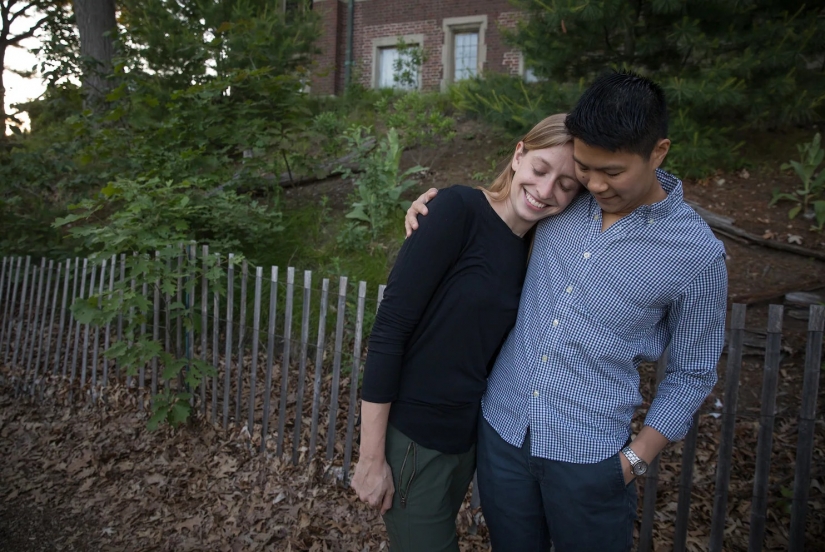
Alex is worried that after completing the sex change process, he will look effeminate, because the Chinese type is characterized by soft features and almost complete absence of facial hair. His voice had already begun to break and become lower, so that others began to perceive Alex as a man.
The transgender man noticed that recently his colleagues began to perceive him as a person with logic. He is being asked more and more questions and more often asked for advice. If earlier, in the female body, he was often asked about something vague and walked around the bush, now they put questions clearly and clearly.
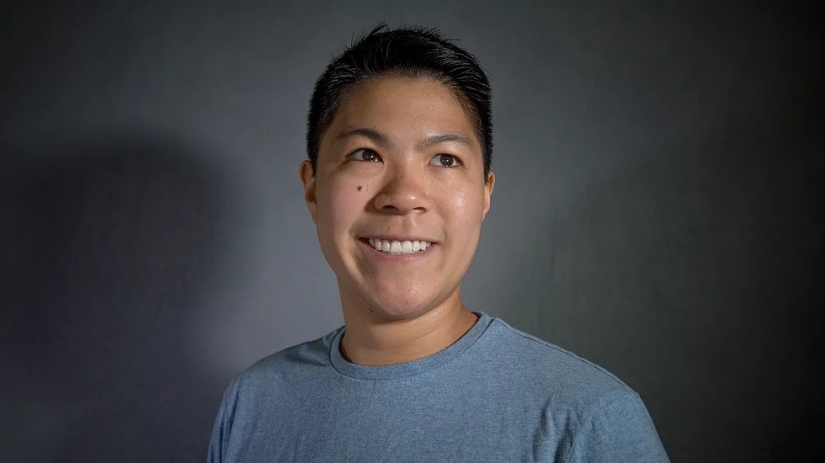
Alex is a little sorry that he didn't tell his late grandfather about who he really feels. Their relationship could be completely different, because in traditional Chinese culture, men are valued more than women. If earlier Alex was the youngest granddaughter, now he has become the eldest grandson, changing the pedigree sequence.
Meanwhile, a constable from Britain, who served in the police for 19 years, asked to be considered a woman. This has been a secret for several decades.
Keywords: Conflict | North america | Women | World | Life | Relationships | Men | Changes | Society | Difference | Gender | Transgender | Gender change | Revelation | Confessions
Post News ArticleRecent articles

It's high time to admit that this whole hipster idea has gone too far. The concept has become so popular that even restaurants have ...

There is a perception that people only use 10% of their brain potential. But the heroes of our review, apparently, found a way to ...
Related articles

This project full of sexual desire and diverse energy dynamics. Look at women through the eyes of a woman, talented photographer ...

Tired after a hard day at work? Suffer from autumn depression? Don't know how to entertain yourself in your free time? This ...

In the fall of 1972, Bill Yates traveled through the countryside in the vicinity of Tampa, Florida. At that time, he was studying ...

New Year's is a time to surprise and delight loved ones not only with gifts but also with a unique presentation of the holiday ...